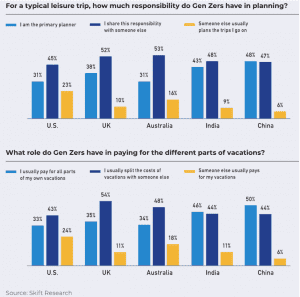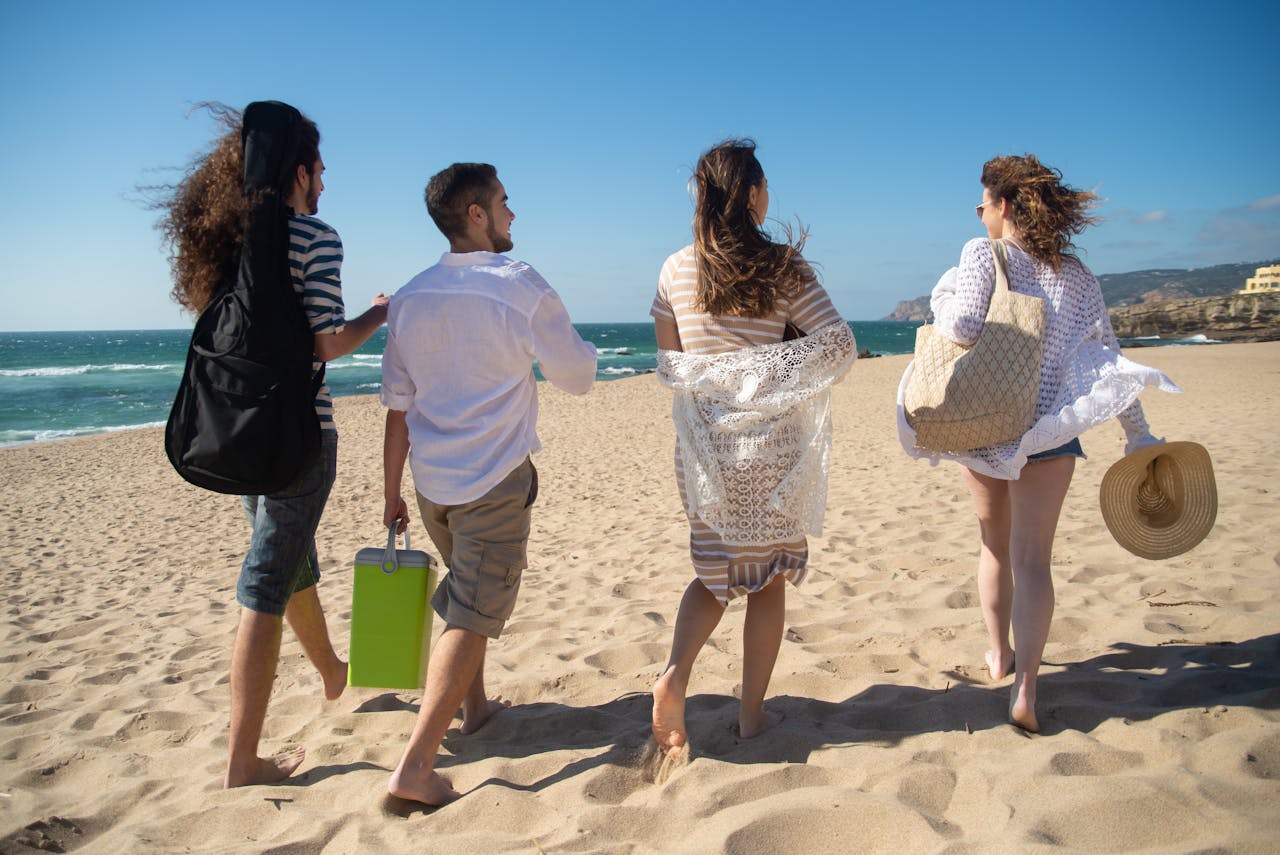How Luxury Hotels Are Keeping Up With Green-Friendly Family Travel Trends

Skift Take
Family travel will look a lot different in 2020 and beyond — especially in the luxury space. Not only is multigenerational travel on the rise, but Gen Z, in particular, is looking for sustainable operations that align with their values. Sure, the family cruise will still be around, but Gen Z will likely push their parents, grandparents, aunts, and uncles toward more environmentally friendly experiences.
This kind of multigenerational travel, that's truly sustainable and offers opportunities to engage with the local environment and culture, however, comes at a higher cost. What does that mean for families who are eager to not only patronize sustainable hotels but learn together as a family? We explore how sustainability really factors into multigenerational travel decisions and which luxury hotels are crafting programs that teach younger generations about sustainability.
Gen Z's Sphere of Influence
Gen Z has a propensity to want to pay more for sustainable travel, but there is a gap in the actual purchase numbers, according to Skift Research's Millennial and Gen Z Traveler Survey 2019: A Multi-Country Comparison Report. The generation is, however, influencing their parents and grandparents when it comes time to plan a family vacation, the report also shows.
That makes Gen Z, many of whom will be graduating college and entering the workforce in the coming years, an important segment to watch. Not only are they swaying their families’ decisions now, but they’ll soon have their own families for whom they’ll drive the majority of travel choices.
“As members of Gen Z fully enter adulthood in the next decade, they will have greater autonomy over their travel decisions, and as their spending power increases, so too will their ability to travel," Skift Research Analyst Meghan Carty explained in Skift Megatrends 2020. "The oldest Gen Zers by 2030 will be in their 30s, and many will likely have children by then, bringing Gen Z family travel onto the radar of the travel industry.”

In the meantime, Gen Z will still help shape family travel, as the bar graph shows, but have a smaller role when it comes to paying for those experiences.
“Gen Z is increasingly influencing multigenerational travel decisions. However, we have also seen that there is a gap between guests’ awareness and desire to stay at sustainable hotels versus their willingness to pay more for them,” said Gregory Miller, Executive Director, Center for Responsible Travel.
That being said, they can still put pressure on older generations to foot the bill, and properties have started taking notice.
“Some hotels recognize the power of this generation and impact they have on their family travel,” said Julie Danziger, managing partner and director of leisure of luxury travel advisory EMBARK Beyond.
Where Multigenerational Travel and Sustainable Hospitality Meet
A global sweep of the hospitality industry shows more than a handful of five-star resorts that understand luxury, sustainability, and family time make for a profitable combination. Engaging younger guests to take part as early as possible, they predict, will have long-term effects.
For example, the Jean-Michel Cousteau Resort in Fiji recently partnered with the experiences division of luxury homesharing platform ThirdHome to craft a comprehensive program for families to experience nature and local culture through a weeklong immersion.
"Adults, particularly younger adults, are driving the decision for families to learn more about sustainability," said Jean-Michel Cousteau Resort’s General Manager Bart Simpson. "Millennials are very focused on green initiatives and ways that they can contribute to the environment, so it is natural that they choose this lifestyle as well when traveling."
Club Med built its Amazing Family Program based on research that found "family togetherness" and "intergenerational bonding" to be the two biggest drivers for choosing a vacation. The program engages multigenerational families and “skip-gen” travelers in low-impact activities like life-size board games or beginner yoga. And Six Senses launched its Grow program in 2018 to teach younger generations about sustainability and wellness through out-of-the-ordinary experiences. Think: singing bowl workshops, Portuguese tile painting, Arabic lessons, and organic farming.
The youngest travelers in a family who understand the value of environmentally and culturally sustainable travel will continue to shift travel decisions for the foreseeable future. For luxury hotels that understand this, not only as a business case but a moral one, the impact on their bottom lines will be significant.
"Exposure to green efforts, especially for (the) younger generation, is important. We implement green and sustainable products and practices in our destinations and hope that through exposure, the younger generation will change habits and buy into greener lifestyles. It’s also important for older generations to set the example by participating in green activities," said James Henderson, CEO of Exclusive Resorts, which recently will reveal six new Once in a Lifetime Journeys later this month. The members-only group trips are built around exotic locations and unique experiences that deliver the natural environment that multigenerational clients often seek.
One case study in multigenerational, sustainable travel is Turtle Island, a five-star, family owned-and-operated private island in Fiji, which built a family-friendly, environmentally and culturally responsible experience. While the resort originally catered to couples, it has seen the multigenerational travel segment grow significantly in the past five years, especially from the United States and Australia.
“For the first trip, the instigator is usually the grandparents wanting to connect with the family and bring everyone together. However, we find that for the second and returning trips, it's mainly the parents and grandchildren wanting to do it again,” said Racheli Evanson, the marketing director at Turtle Island.
The resort champions sustainability from an environmental and cultural standpoint, and crafts hands-on learning experiences that are appropriate for everyone from grandparents to children — which is why it has likely found success.
“What we're finding as 'family time' increases in popularity on Turtle Island, our families are booking return trips two to three years ahead — this is a generation that is growing up on Turtle Island and embracing our sustainable principles.”
Sparking Conversation With Gen Z
While in-person experiences are the best way to engage Gen Z, social media is also an integral part of connecting with this audience, who will continue to drive travel purchase decisions within their families and on their own.
Most social media followers of The Resort at Paws Up, a luxury property and working cattle ranch located on 37,000-acres in western Montana, come from this age group, who follow for the photos, videos, and aspirational messaging.
“The Gen Z audience resonates well with our messaging of Paws Up being similar to a private national park. Guests can experience iconic views, historic trails, rivers teeming with fish, and wildlife all around — and this all can be witnessed and experienced in privacy,” said owner Laurence Lipson.
In addition to social media, Turtle Island found that the best form of communication with younger guests is through good old-fashioned word-of-mouth — like friends telling friends after summer vacation.
As Gen Z continues to voice their preference for natural, sustainable travel experiences, the market will continue to respond. If there is money to be spent, there is an incentive to shift practices to match the values and interests of this up-and-coming segment.
Skift’s in-depth reporting on climate issues is made possible through the financial support of Intrepid Travel. This backing allows Skift to bring you high-quality journalism on one of the most important topics facing our planet today. Intrepid is not involved in any decisions made by Skift’s editorial team.




